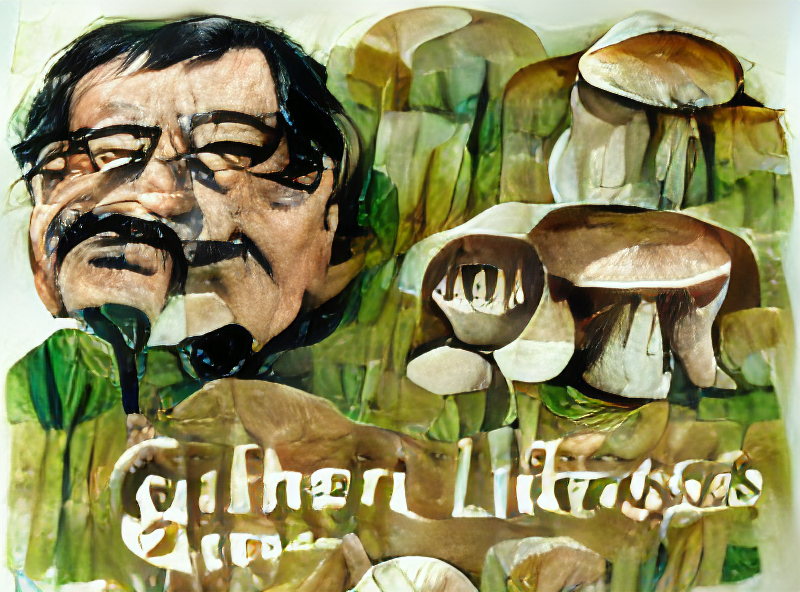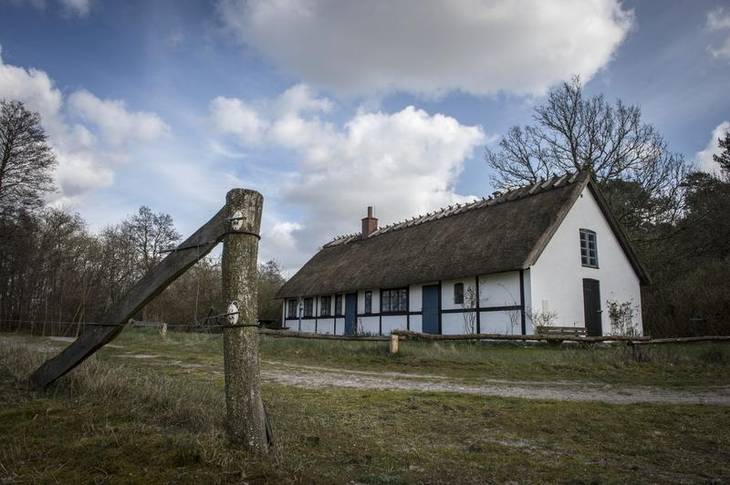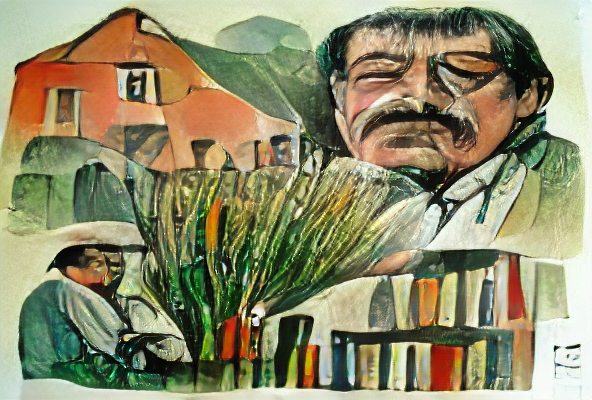Nobel laureate Günter Grass spent most of his summer holidays in Ulfshale. He died in 2015 at the age of 87.
The controversial Nobel Prize winner Günter Grass died on Monday morning at the age of 87. He died in his hometown of Lübeck.
The author also had close ties to Denmark, where he spent his life gathering strength during the summer holidays in Ulvshale on Møn. Here he rented an old farmhouse on the spot and was graciously devoid of public attention.
This meant, among other things, that he liked to go to places that he knew there weren’t that many people there.
Like in the ‘Sommerbutikken’ grocery store at Camping Ulvshale Strand near the old farmhouse.
- We knew who he was. And he came and played for the six years that I’ve been here, says owner Vivi Højklint.
One of the few Danish journalists who were allowed to interview Günter Grass while on vacation in Denmark is Jens Martin Roelsgaard, Stege, who has worked for the editorial team of Møns Tidendes Stege since 1999.
- We wanted to market Møn as a place. My editor and I were discussing interviewing him when we were told he would be there. I went out there, says Jens Martin Roelsgaard.
- My German was subject to all criticism, but we still understood each other, continues Jens Martin Roelsgaard.
Had a secret about mushrooms

During the interview, Roelsgaard discovered the man Grass, who turned out to be happy with mushrooms. He liked coming to Møn when the mushroom season was just about to peak, and Karl Johan and chanterelles were his favorites.
- He told us that he knew a really good place, but he didn’t want to say exactly where, says editor Svend Klarskov.
This largely corresponds to Vivi Højklint’s view.
- He took care of himself and enjoyed the outdoors, she says.
Only a few times did he make a name for himself in public during his holidays in Denmark. For example in 2000 when he helped set up the summer event “World literature on Møn” in Teaterhøjskolen Rødkilde.
Among other things, Grass read part of his literature here and was able to show the locals, among other things, that he understood Danish well.
Something that was self-taught and probably because he wanted to keep up to date while on vacation.
- He bought his newspapers. And they were Danish. We don’t have any German newspapers, says Vivi Højklint, who also says that Günter Grass always came and acted alone.
In 2007, Grass decided to get involved in public when Stege Bio showed the film adaptation of Bliktrommen – the most famous novel that Günter Grass has written. He told about the making of the film, in which he was very actively involved.
- I tried to interview him, but because I mentioned his past in the SS, he refused to speak to me. It’s a shame, because Grass was a big VIP on Møn, explains Svend Klarskov.
Møn in memory
In his memory “Die Box”, Grass told of his many holiday experiences in Møn and reproduced a funny anecdote which in his own way showed his interest in Danish history and why he liked Denmark and the Danes.
It was from the time around Copenhagen’s siege when a British warship also fired the main town of Møn, Stege, which was resolutely defended by the locals with just one weapon for weeks until the enemy disappeared.
However, this problem had arisen, Grass wrote that the captain of the patrons should hold a wedding reception for his daughter. With a white flag in their bow, they rowed over to the British sausage and told them they couldn’t answer cannon fire the next Sunday.
After an agreed one-day truce, mutual shelling continued.
Grass was one of the most important writers of modern German times.
In 1959 he wrote his first novel, the internationally recognized “canvas”.
“The publication of the Tin Room marked the rebirth of the German Romans in the 20th century,” said the Nobel Committee 40 years later when it awarded the 1999 Grass Prize for Literature.
Controversial collection of poems
Grass survived the horror of scars on body and soul at the age of 17 and later became the moral conscience of the German left in his work as a poet, graphic artist and visual artist.
At the age of 85 he published the collection of poems “Døgnfluer”, which pays homage to the Israeli nuclear engineer Mordechai Vanunu, who was sentenced to 18 years in prison for exposing the Israeli nuclear program.
The poem sparked heated debate and Grass was banned by the Israeli government.
- Grass always had a hard time with his country. But that is precisely why he is a patriot who has changed the perception of Germany all over the world, said Federal President Horst Köhler in his celebratory speech on the 80th birthday of Grass.

The article is a translation from https://ekstrabladet.dk
Works by Günter Grass
Skinning the onion
The novel The Skinning of the Onion by Grass uses self-hatred and the complexity of truth to explore German identity during the Nazi era. The novel follows the protagonist Oskar Matzerath in his observations of his family and his surroundings, while he takes on the role of the “spy”. With this approach, Grass depicts the violence and harshness of everyday German life at this time. Grass draws attention to the contradictions in the Nazi ideology. The novel is about self-hatred, i.e. the rejection of oneself in search of perfection. Skinning the onion isn’t always positive. Finding the perfect skin for yourself can be bloody, but it can also be self-loathing.
I’m definitely in the minority at Günter Grass in Ulvshale on Møn. When my colleagues found out that I was taking three days off to read the Nobel Prize winner’s work, they looked at me questioningly. But I’m not entirely sure what to expect when they heard that these were the final pieces of Grass literature.
Günter Grass, the German novelist of The Tin Drum, was born in Gdansk, Germany in 1927. The Danzig in which Grass grew up had a Polish majority, although the Danzig region was part of Germany. Dear readers,
Günter Grass fell at the age of 77. Grass is a German writer with more than 30 novels, volumes of poetry and dramas. This week he fell on an island in Mán. Grass said he did not know how he got there, but speculated that he “walked up the slope without noticing the slippery path”. He is currently being treated for his injuries.
We wish Grass a speedy recovery after this unfortunate accident.

